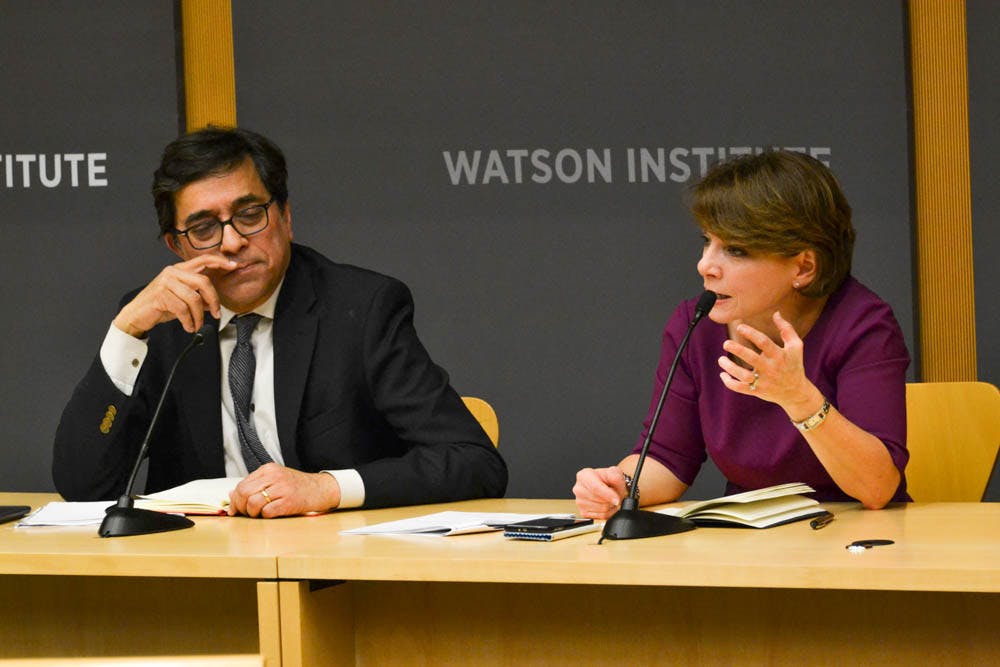The University cannot stop talking about President Trump. On Wednesday, Chair of Political Science Wendy Schiller and Professor of Political Science and International and Public Affairs Ashutosh Varshney dissected the rise of Trump within the context of national and global populist movements in their talk, “The Rise of Populism.”
Varshney began the event, hosted by the political science departmental undergraduate group, by attempting to define the ambiguous term central to the talk: populism. Rather than provide a concrete definition, Varshney isolated key elements usually found in populist movements. First, Varshney noted that populism is more a set of ideas, discourses and temperament than a cohesive ideology. Varshney observed that, in the developing world, populist movement leaders usually lean left while, in richer countries, populism aligns more with rightwing politics.
Varshney noted that populism elevates radical majoritarian politics as an opposing force to liberalism and pluralism. At the same time, populist governments can paint dissenting groups as immoral, malevolent or dangerous to national security. Populists often give off the impression that they represent the will of the “true people” against some form of nebulous force, Varshney said.
Varshney also touched on the consequences of the recent rise of populist movements around the world, discussing populism’s potential ramifications on the liberal economic order, which is based on an ideal of free movement of capital, labor and goods, he added.
While populism is commonly thought to be caused by the working classes left behind by globalization, Varshney argued that this idea is incomplete. “Why were countries that are generally agreed to have benefitted from globalization turning to populism, such as India and Turkey?” he asked. “Why did the African American and Hispanic working classes not end up supporting Trump?” He said he believes economic causes were pivotal, but that ethnic factors also played a large role in the recent rise of populism.
Schiller shifted the discussion toward populism in the United States, recounting the “Farmer’s Alliance,” a populist movement of the late 19th century that combined economic aggrievement with social and ethnic concerns, much like today. Those factors were perhaps the root cause of the Chinese Exclusion Act of 1882 as well as much of the anti-Catholic and anti-Jewish sentiment in the country, Schiller said. This demonization of the “other” is a staple in American populism, she added.
The discussion inevitably shifted toward Trump. When asked what they would suggest students do to combat feelings of anxiety provoked by populism, Varshney suggested two ways to act. First, students should appeal to ideas of civic, rather than ethnic, nationalism and the idea that U.S. citizens are united by common ideas about liberty, justice and equality. Second, Varshney suggested waiting to let the populists make mistakes as the movements often ebb and flow.
Schiller suggested students focus their attention on particular policy issues, rather than Trump’s persona. Students should protest these issues vigorously, but also not shut out Trump supporters, she added.
Correction: A previous version of this article stated that the event was hosted by the Watson Institute for International and Public Affairs. In fact, the event was hosted by the political science departmental undergraduate group. The Herald regrets the error.





